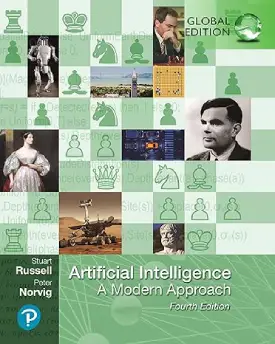Data occupations: Data Scientist vs Data Engineer vs Data Analyst vs Machine Learning Engineer
Data Occupations
In the digital age, the sheer volume of information generated daily has given rise to a multitude of exciting and diverse career opportunities in the field of data. From deciphering complex datasets to developing cutting-edge algorithms, professionals in data occupations are at the forefront of innovation and decision-making. Let’s embark on a journey to explore some of the key roles within the vast and dynamic landscape of data occupations.
Let’s explore the different data-related occupations.
Data Analyst
So, a data analyst is basically someone who digs into a bunch of data to find the good stuff that businesses can use. They use cool tools, like stats methods and computer languages, to make sense of all the numbers and turn them into useful insights. It’s like being a detective for data, finding patterns and trends that can help companies make smart decisions. These folks are all about optimizing things, solving issues, and helping businesses plan for what’s coming next. With a knack for detail and a knack for crunching numbers, data analysts are the unsung heroes behind a lot of smart moves businesses make.
Skills needed
Analytical Skills
Analysing and interpreting data is at the core of a data analyst’s role. This involves recognising patterns, trends, and anomalies within datasets.
Technical Proficiency
Programming languages like Python, R, or SQL is essential. Analysts use these languages to manipulate and extract insights from large datasets.
Data Cleaning and Preprocessing
Data is rarely pristine. Skills such as cleaning and preprocessing data is a must, ensuring accuracy and reliability in their analyses.
Data Visualization
Creating visualisations is key to conveying complex findings. Tools like Tableau or Power BI help analysts present insights in an understandable format.
Database Management
Comprehension of how to query and interact with databases is important. SQL proficiency is often required for efficient data extraction.
Critical Thinking
Approaching problems analytically and critically is fundamental. Data analysts must draw meaningful conclusions to address business challenges.
Business Acumen
Connecting data insights to business objectives is vital. Understanding the broader organisational context and aligning their analyses with strategic goals is crucial.
Attention to Detail
A keen eye for detail helps analysts spot anomalies or outliers, ensuring the accuracy of their analyses.
Effective Communication
Communication skills are crucial for conveying complex findings to non-technical stakeholders. Data analysts must present insights in a clear and concise manner.
Continuous Learning
The field of data analysis is dynamic. Analysts should have a mindset of continuous learning, staying updated on new tools and techniques.
Data Scientist
So, a data scientist is kind of like a modern-day detective for information. They’re all about digging deep into massive piles of data, using math, stats, and coding tricks to find the hidden gems. These folks are like wizards of analysis, using cool techniques and machine learning to make sense of raw data. They’re the storytellers who turn complicated info into clear insights, helping businesses figure out what’s coming next, solve problems, and stay ahead of the game. Basically, data scientists are the magic-makers who turn data into the superpower businesses need to make smart moves. Learn more about DS.
Skills needed
Statistical Analysis
Foundation in statistical methods is crucial. Data scientists use statistical techniques to draw meaningful conclusions from datasets.
Programming Languages
Programming languages like Python or R is a must. Data scientists use these languages for data manipulation, analysis, and machine learning.
Machine Learning
Machine learning algorithms is a core skill. Building models to predict trends, make recommendations, and solve complex problems is a must.
Data Cleaning and Exploration
Cleaning and exploring data is essential. It’s crucial to identify patterns and anomalies within datasets.
Data Visualization
Clear and compelling visualisations is key. Data scientists use tools like matplotlib, seaborn, or Tableau to present complex findings.
Business Acumen
Business context is crucial. Data scientists align their analyses with organisational goals, providing insights that drive strategic decision-making.
Communication Skills
Communication skills are vital for conveying complex findings to non-technical stakeholders. Data scientists should present insights in a clear and understandable manner.
Big Data Technologies
Big data technologies such as Apache Spark or Hadoop is often necessary. Data scientists use these tools for processing and analysing large datasets.
Experimentation and A/B Testing
Experiments and A/B testing is a common practice. Data scientists use these techniques to validate hypotheses and optimise solutions.
Continuous Learning
The field of data science is dynamic. Data scientists need a mindset of continuous learning, staying updated on new algorithms and technologies.
Data Engineer
Alright, imagine a data engineer as the backstage wizard. They’re the brains building the systems that handle tons of data smoothly. These folks design and set up databases, create the paths for data to flow, and make sure everything runs like a well-oiled machine. Using different tools and coding languages, they craft strong, scalable systems that help data analysts and scientists do their thing. So, in a nutshell, data engineers create the groundwork that lets everyone else in the data world shine.
Skills needed
Database Management
Managing and designing databases is fundamental. Data engineers work with various database systems and need to optimise data storage and retrieval.
Programming Skills
Programming skills, especially in languages like Python, Java, or Scala, are essential. Data engineers use programming to develop and implement data processing systems.
Data Modeling
Creating effective data models is crucial. Engineers design structures that allow for efficient storage, retrieval, and analysis of data.
ETL (Extract, Transform, Load)
Expertise in ETL processes is a core skill. Data engineers need to extract data from different sources, transform it into a usable format, and load it into databases for analysis.
Big Data Technologies
Big data technologies like Apache Hadoop, Apache Spark, and Apache Kafka is often necessary. These tools are used to process and analyse large datasets.
Cloud Platforms
Cloud platforms such as AWS, Azure, or Google Cloud is increasingly important. Data engineers leverage cloud services for scalable and flexible data solutions.
Data Pipeline Architecture
Designing efficient and scalable data pipelines is a vital skill. Engineers create systems that automate the flow of data from source to destination.
Collaboration and Communication
Communication and collaboration skills are critical. Work with cross-functional teams is important, including data scientists and analysts, to meet organizational goals.
Data Security and Compliance
Data security and compliance regulations is vital. Engineers ensure that data is handled and stored in accordance with legal and organisational standards.
Troubleshooting and Problem-Solving
Data engineers need a strong problem-solving mindset. Troubleshoot issues in data pipelines occurs often, ensuring data integrity and system reliability.
Machine Learning Engineer
Alright, so a machine learning engineer is like the tech whiz making machines super smart. They’re the folks who dive into programming, data crunching, and math wizardry to create systems that can actually learn stuff on their own – no constant telling required. These engineers are the brains behind designing and training those smart systems, tweaking the nuts and bolts of the algorithms, and making sure everything works smoothly. They’re the ones making AI-powered magic happen, whether it’s predicting trends, automating tasks, or giving you those spot-on recommendations. In a nutshell, machine learning engineers are the cool cats turning machines into brainy sidekicks. Learn more about ML.
Skills needed
Programming Proficiency
Programming skills are fundamental. Machine learning engineers often use languages like Python or R to develop and implement machine learning algorithms.
Machine Learning Algorithms
ML algorithms is a core skill. Engineers need to understand and apply various models to solve real-world problems.
Data Processing
Data processing and manipulation is essential. Cleaning and preprocessing data is important, to ensure its quality and relevance for model training.
Statistical Analysis
Comprehension of statistical methods is crucial. Engineers use statistical techniques to validate and fine-tune machine learning models.
Deep Learning
Deep learning techniques and neural networks is often neeeded. Machine learning engineers apply these advanced methods for tasks like image recognition and natural language processing.
Big Data Technologies
Big data technologies like Apache Spark or Hadoop is beneficial. Engineers leverage these tools for processing and analysing large datasets.
Model Deployment
Deployment of machine learning models into production is essential. Engineers should ensure that models work seamlessly in real-world applications.
Cloud Platform
Cloud platforms, such as AWS, Azure, or Google Cloud, is often necessary. Machine learning engineers use these platforms for scalable and flexible solutions.
Version Control
Version control tools, such as Git, is important. Engineers use these tools to track changes in their code and collaborate effectively with team members.
Continuous Learning
The field of machine learning is dynamic. Machine learning engineers need a mindset of continuous learning, staying updated on new algorithms and technologies.
The Bottom Line
As we navigate the data universe, it becomes evident that the field of data occupations is not a monolithic entity but a rich tapestry of diverse roles, each playing a unique and crucial part in the data ecosystem. Whether you’re deciphering insights, building foundations, or crafting blueprints, the world of data occupations offers exciting opportunities for those seeking to be at the forefront of technological advancements and innovation. Embrace the diversity within the data field, and discover the role that best aligns with your passion and skill set. The data universe (full of data occupations) awaits exploration, and the possibilities are boundless.





